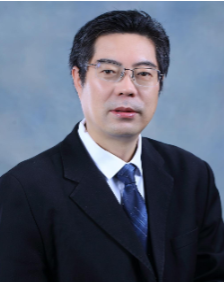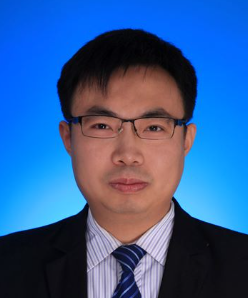

Prof. Dong Xu (AAAS Fellow, AIMBE Fellow)
University of Missouri-Columbia, USA
Biography: Dong Xu is Curators’ Distinguished Professor in the Department of Electrical Engineering and Computer Science, with appointments in the Christopher S. Bond Life Sciences Center and the Informatics Institute at the University of Missouri-Columbia. He obtained his Ph.D. from the University of Illinois, Urbana-Champaign in 1995 and did two years of postdoctoral work at the US National Cancer Institute. He was a Staff Scientist at Oak Ridge National Laboratory until 2003 before joining the University of Missouri, where he served as Department Chair of Computer Science during 2007-2016 and Director of Information Technology Program during 2017-2020. Over the past 30 years, he has conducted research in many areas of computational biology and bioinformatics, including single-cell data analysis, protein structure prediction and modeling, protein post-translational modifications, protein localization prediction, computational systems biology, biological information systems, and bioinformatics applications in human, microbes, and plants. His research since 2012 has focused on the interface between bioinformatics and deep learning. He has published more than 400 papers with more than 21,000 citations and an H-index of 74, according to Google Scholar. He was elected to the rank of American Association for the Advancement of Science (AAAS) Fellow in 2015 and American Institute for Medical and Biological Engineering (AIMBE) Fellow in 2020.
Title: Biological Pathway Annotation through Image Understanding and Text Mining
Abstract:Scientific literature figures contain a wealth of information, particularly in areas, such as genomics, pharmacogenomics, immunology, and other fields. Biological pathway figures often illustrate new molecular mechanisms that require curation for various applications, particularly in precision medicine. However, manual curation methods for these figures struggle to keep pace with the rapidly expanding biomedical literature. To address this issue, we proposed a pathway curation pipeline that combines image understanding and text mining techniques. This pipeline utilizes deep learning models for object detection, Siamese networks, and optical character recognition to identify the locations, names, and interactions of pathway entities within figures. We also introduced an image-text contrastive learning model to improve pathway figure curation using text supervision. Furthermore, we integrated ChatGPT's prediction of gene interactions into our pipeline, demonstrating promising results for enhancing the mining of pathway information.

Prof.Guandong Xu (IET FELLOW, ACS fellow)
University of Technology Sydney, Australia
Biography: Dr Guandong Xu is a Professor in the School of Computer Science and Data Science Institute at UTS and an award-winning researcher working in the fields of data mining, machine learning, social computing and other associated fields. Guandong is the Director of the UTS-Providence Smart Future Research Centre, which targets research and innovation in disruptive technology to drive sustainability. His research has attracted funding of more than $8 million from the ARC, government and industry. He also heads the Data Science and Machine Intelligence Lab, which is dedicated to research excellence and industry innovation across academia and industry, aligning with the UTS research priority areas in data science and artificial intelligence. Guandong has had more than 240 papers published in the fields of Data Science and Data Analytics, Recommender Systems, Text Mining, Predictive Analytics, User Behaviour Modelling, and Social Computing in international journals and conference proceedings in recent years, with increasing citations from academia. He has won numerous awards, including the Digital Disruptors Winner for ICT Research Project of the Year, Australian Computer Society (2021), the eBay's Leaders' Choice Award (2021); the CIKM'2021 Conference Best Research Paper Finalist; Global Efma-Accenture Insurance Innovation Award in Workforce Transformation (2020); the Digital Disruptors Winner for Skills Transformation of Small Work Teams, Australian Computer Society (2019), and the Digital Disruptors Gold Award of Service Transformation for the Digital Consumer – Corporate by Australian Computer Society (2019); the Top 10 Analytics Leaders by Australian Analytics Professional Peak Body (2018); the Australasian Database Conference Best Student Paper Award (2018); Marketing Excellence Award in Customer Research, NSW (2017), and; the Big Insights Data Innovation Award in Customer Insights (2016). He has shown strong academic leadership in various professional activities. He is the founding Editor-in-Chief of Human-centric Intelligent Systems Journal, the Assistant Editor-in-Chief of World Wide Web Journal, as well as the founding Steering Committee Chair of the International Conference of Behavioural and Social Computing Conference. Guandong has an MSc and a BSc in Computer Science and Engineering, and a PhD in Computer Science. After holding various research positions at European and Australian universities, he joined UTS in 2012. He was elected as the Fellow of Institution of Engineering and Technology (IET), UK and the Fellow of Australian Computer Society (ACS) in 2021 and 2022.
Title: Deep learning-based automated depression detection through social media
Abstract:Twitter is a widely used social media website that allows individuals to share their own content with the public. The data generated by users on this platform is extremely valuable for healthcare technology as it can reveal important patterns that can greatly benefit the field in multiple ways. An example application is the automatic identification of mental health issues such as depression. This talk aims to present our recent research of developing approaches to identify depression using online social media, particularly Twitter, and build prediction models that can identify users who are likely to be experiencing mental problems or displaying symptoms thatmight soon lead to mental disorders, and provide model explanations for better use. Case studies on mental status and evolution of depression people during covid-19 are also reported.

Prof. Wendong Xiao (IEEE Senior Member)
University of Science and Technology Beijing, China
Biography: Wendong Xiao is currently a Professor and PhD supervisor with the School of Automation and Electrical Engineering, University of Science and Technology Beijing, P. R. China. He held various academic and research positions with the Institute for Infocomm Research (I2R), Agency for Science, Technology and Research (A*STAR), Singapore (2004-2012), Nanyang Technological University, Singapore (2001-2004), Northeastern University, China (1999-2001), as well as the POSCO Technical Research Laboratories, South Korea (1996-1999). He received his Ph.D. degree from Northeastern University, China in 1995. His current research focuses on wearable computing, non-contact intelligent sensing, intelligent data processing, and energy harvesting based network resource management. He has published about 300 papers in Journals and conferences and has been participating in a number of research and industrial projects in the related areas, funded by the National Key Research and Development Program, National Natural Science Foundation of China, etc. He is a senior member of IEEE, an executive committee member of the Health Engineering Branch of the Chinese Biomedical Engineering Society, Vice Director of the Intelligent Internet of Things Systems Committee of the Chinese Simulation Society, and an invited expert of several Xiangshan Scientific Conferences. He was the TPC Chair of of the Eighth National Wearable Computing Academic Conference 2018 and member of the Steering Committee of the National Wearable Computing Academic Conference from 2020 to 2023.
